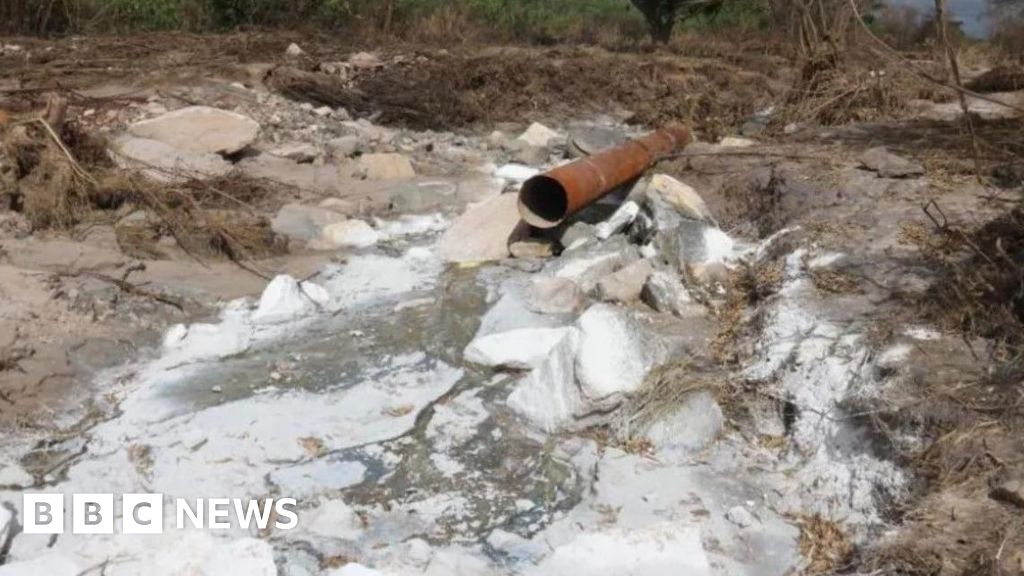By Kennedy Gondwe
Copyright bbc

Sino-Metals disputed the accuracy of Drizit’s findings and in a statement to The Associated Press said that it had terminated its contract with the company, citing “contractual breaches”.
A travel advisory by the Finnish government last month showed that water samples from the area of the acid spill contained 24 different heavy metals, 16 of which, including nickel, lead, arsenic, zinc, and uranium, exceeded the safety thresholds set by the World Health Organization.
The US embassy also issued a health alert, ordering the immediate withdrawal of its personnel in Kitwe town and nearby areas due to concerns of “widespread contamination of water and soil”.
However, Zambia’s government downplayed the threat, saying there were no longer any serious implications for public health.
In a statement on Thursday, Human Rights Watch said the acid pollution had “killed fish, burned maize and groundnut crops, and led to the deaths of livestock, wiping out livelihoods of local farmers”.
At the time of the spill, Sino-Metals pledged to compensate the affected communities and restore the environment.
While acknowledging the $580,000 (£430,000) compensation as “a step in the right direction,” Zambia’s Vice-President Nalumango on Wednesday said the pay-out “must be guided by thorough and independent assessment”.
“If the damage to the land and livelihoods proves to be more extensive or long-lasting than initially understood, then further compensation will be necessary and it will be pursued,” said Nalumango in a meeting with Sino-Metals officials.
Environmental activists told HRW that community members in areas affected by the pollution were still complaining of headaches, coughing, diarrhoea, and other health issues that increased after the spill.
Some of those affected said they had not received the promised compensation, according to HRW.
Authorities have since imposed a fishing ban on the Kafue River and deployed the air force and speedboats to drop lime to reduce acidity levels in the affected waterways.
Zambia is among the world’s top 10 copper-producing countries and its economy is heavily reliant on the mining sector.
Additional reporting by Wycliffe Muia



